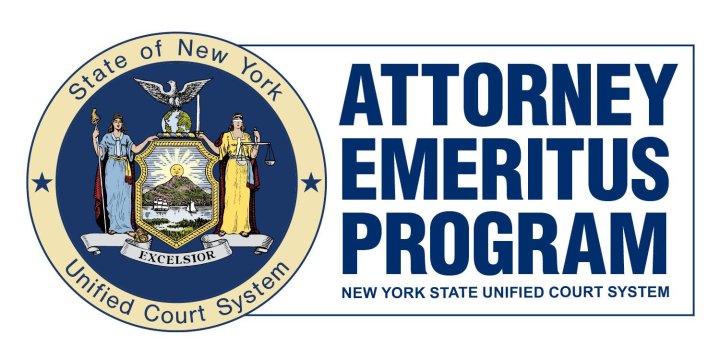On February 3, 2025, the Attorney Emeritus Program (AEP or the Program) hosted a virtual host organization convening, which focused on Racial Justice Model Practices and expanding access to civil legal services in rural areas. With 36 partner civil legal services organizations in attendance and 38 participants, Deputy Chief Administrative Judge for Justice Initiatives Edwina G. Richardson kicked off the event with a warm welcome. Judge Richardson celebrated the important work being done by AEP host organizations and highlighted many of the New York State Unified Court System's (NYSUCS) recent commitments towards expanding access to justice for court users, including vulnerable populations.
The event was facilitated by members of the AEP and the NYSUCS's Office for Justice Initiatives (OJI) leadership. Dora Galacatos, Executive Director of Fordham Law School's Feerick Center for Social Justice, was joined in planning and facilitating the event by Lisa M. Zayas, OJI's Director of the Division of Access to Justice, Randy C. Bowens, OJI's Statewide Equal Justice Coordinator, Nicole Hylton, OJI's Special Projects Coordinator and Deputy Director in the Office for Diversity and Inclusion, Zenith T. Taylor, UCS's Civic Engagement Coordinator in the Communications Department, and Tony Walters, OJI's Director of the Office of Diversity and Inclusion. Feerick Center consultant Nasoan Sheftel-Gomes also participated in the planning and facilitation of the virtual convening. The Hon. Christine M. Clark, an Associate Justice in the Appellate Division, the Third Department and the AEP Advisory Council's Judicial Co-Chair, also facilitated the event, and several AEP Advisory Council members were in attendance.
The event then moved to breakout rooms, where organizations of all sizes, practice areas and geographic locations met for candid discussions facilitated by OJI and Feerick Center staff and the consultant. The discussion centered around current practices for Emeritus volunteer training and anti-racism/cultural competency infrastructure, both of which vary significantly between organizations.
A few themes emerged across the breakout sessions regarding volunteer training, recruitment, and implementing Racial Justice Model Practices. Key challenges raised included resistance to DEIB training, especially among more experienced volunteers, as well as concerns about recent federal funding restrictions regarding DEIB initiatives. Participants also highlighted difficulties in allocating staff resources for volunteer training, particularly at less-resourced organizations.
In terms of successes, some organizations shared that they had established DEIB committees or director positions and focused on hiring employees and recruiting volunteers that reflect the diversity of their client populations. This was aided by the creation of remote volunteer opportunities. Some organizations adopted interactive training techniques like role playing to improve client-centered lawyering, while others set up client focus groups and listening sessions to improve the client experience.
The AEP also heard recommendations for how to most effectively support its 64 active host organizations. Across the breakout rooms, recommendations for AEP support included offering regular training programs (including CLE-accredited options) and creating a bank of recorded training sessions for volunteers. Additionally, host organizations asked for help bridging the technology gap with volunteers by providing tech training.
For many, it was insightful to hear the different perspectives of their colleagues and learn how other organizations were approaching the challenging but important objective of ensuring Emeritus volunteers have the resources and support to provide effective, high-quality pro bono services. With the insights and goals gained from the event, the AEP hopes to build out future programming and resources for host organizations and volunteers and create more opportunities for host organizations to connect and collaborate with each other.


